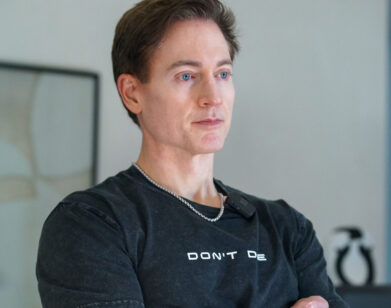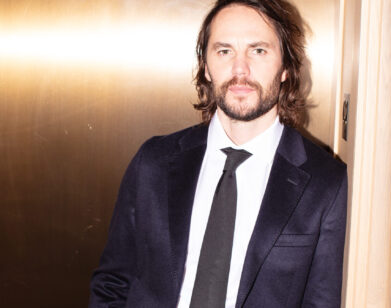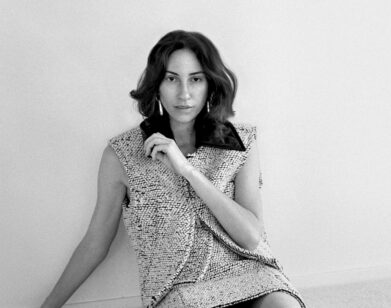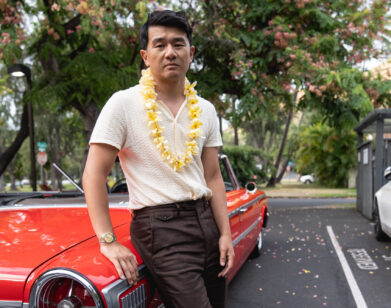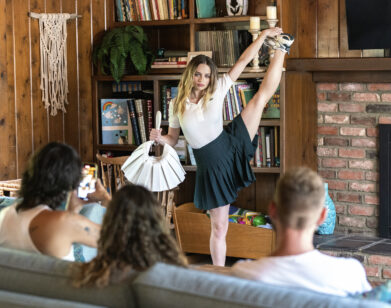yee-haw
The Harder They Fall Co-Stars Zazie Beetz and Jonathan Majors on Getting Into (And Out Of) Character
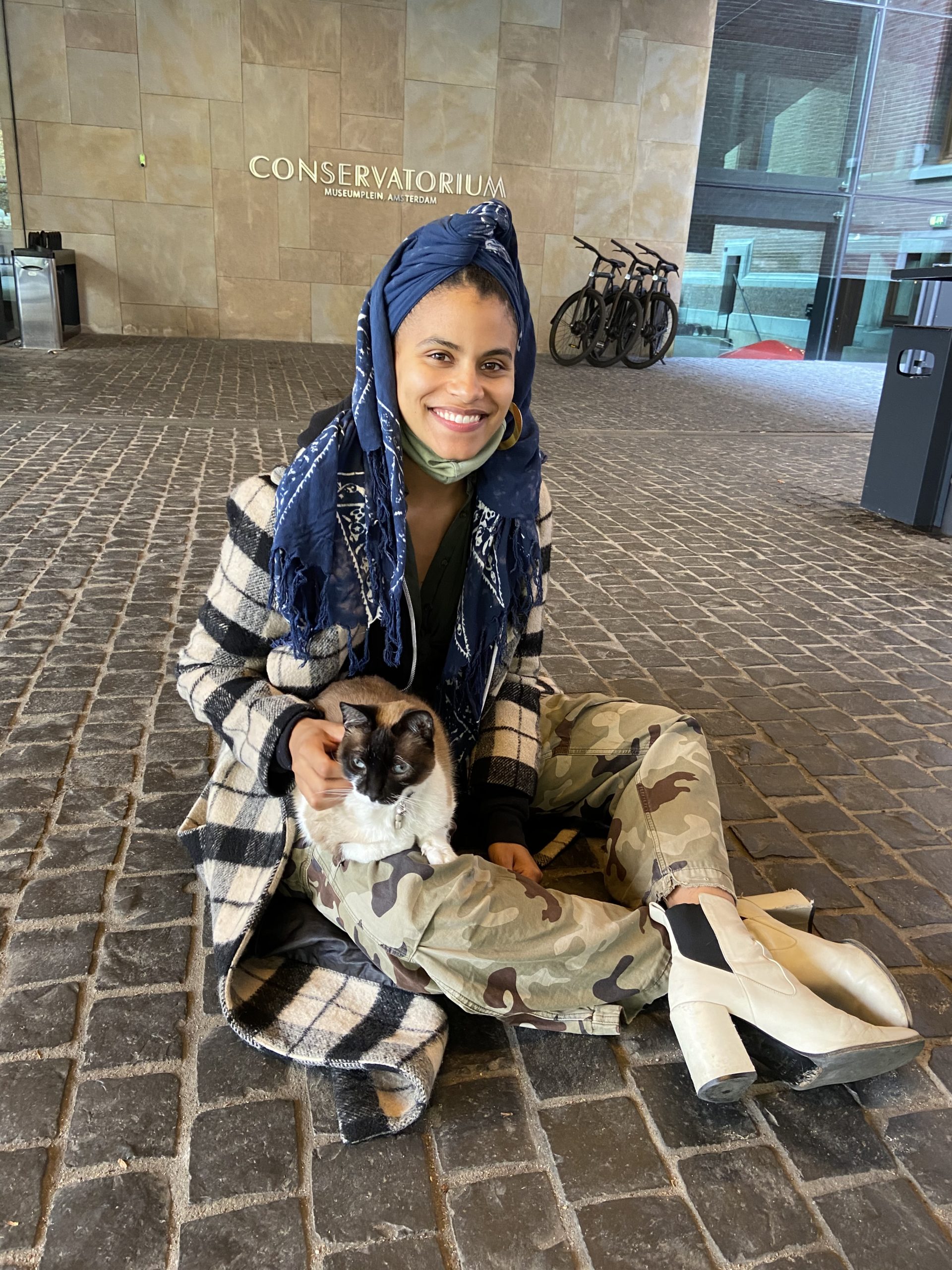
Photo courtesy of Zazie Beetz.
Like any great Western, Netflix’s latest offering, The Harder They Fall, has it all: nail-biting standoffs, men on horses, and a stacked cast. Produced by Jay-Z and directed by Jeymes Samuel, the film follows an outlaw named Nat Love [Jonathan Majors] as he journeys across the high desert to seek revenge against an old rival named Rufus Buck [Idris Elba]. Other key players include Cherokee Bill [LaKeith Stanfield], Trudy Smith [Regina King], and, most importantly, Nat’s confidant and estranged lover Mary Fields [Zazie Beetz]. The film has broken new ground as one of the only mainstream Westerns to feature a predominately Black cast. To mark its recent release, the co-stars Beetz and Majors sat down for a chat about lucky charms, Butch Cassidy, and the challenges of breaking character when the cameras stop rolling.
———
ZAZIE BEETZ: I watched a lot of Western movies before we filmed The Harder They Fall. Did you?
JONATHAN MAJORS: I did.
BEETZ: Did you like Westerns before this?
MAJORS: Yes, but it’s different when you get a job. I mean, you know this, but this is my second Western. So, I had already watched the traditional ones like Unforgiven—the darker ones. With this movie, I watched The Magnificent Seven and Butch Cassidy and the Sundance Kid. That was a big one for me.
BEETZ: Me too. I wasn’t really a big Western fan before this. This is my first Western, and it’s just not what I grew up with. I was more into musicals. So I felt like I was getting an education in this iconic genre. It was good to be able to watch a bunch. I watched Butch Cassidy and The Sundance Kid. Overall, it’s not a genre I’m naturally drawn to, but a good story is a good story.
MAJORS: I liked Butch Cassidy, too, for the relationships. I found his wife so intriguing. When Sundance is in the house and Butch comes in and he thinks he’s robbing him, it’s like our scene a little bit. That wild, young love was cool. There’s an element of that between Nat and Mary. To know that you’re a wild man, but wanting so much to be owned by this woman and needing her, was deep.
BEETZ: We all need both, I suppose—our liberation and to also be held.
MAJORS: It’s interesting, though, because the more liberated you are, the more extreme the other side also is. But I got a question for you, how did you actually get involved in the project?
BEETZ: I got an offer from Jeymes [Samuel, the film’s director]. I read the piece and had some thoughts and notes on Mary, but most of you were already cast at this point. I was really drawn to the other actors and Jeymes had a very clear and specific vision for what he wanted to do and how he wanted to approach it. I also just liked taking this older theme and giving it a modern edge and new flare. I was also drawn to the fact that these were real people. That honestly blew my mind. I didn’t even realize that 25% of the people in the West were Black. I knew we were there, but not to that extent. It changed how I watched Westerns afterward. It was like something was missing.
MAJORS: Did you have any secrets? For example, Nat Love’s dialect is essentially Tina Turner. Even how he rides a horse and how he moves. Tina’s from Tennessee and it always sounded like she had a stick in her mouth when she talked. So that’s one of my secrets.
BEETZ: I didn’t know that. You had a bunch. I think I almost broke one at one point when I wanted to touch that ring. Was that something?
MAJORS: Well, I kept the ring through the pandemic. I held onto it. I just didn’t want to give up on the movie. I kept everything I could. The ring was in my pocket the whole time. When we got to that scene, it was so charged. We couldn’t stop crying. It’s you, me, and this other thing in the room. It was deep. Also, that night you shared a song with me—”The Promise” by Tracy Chapman.
BEETZ: We shared a lot of songs throughout the project. There are some songs that instantly transport me back to Mary and Nat. One of the secret things that I had was a turquoise necklace. I always called it “my heart.” It was funny because there were a few different situations where production was like, “Maybe we lose the necklace here.” And I was like, “No.” I was always very clear that it stayed with me. Finding accents was interesting, too. It took me a while to figure out who I wanted to emulate. Initially, I wanted to work off of Fannie Lou Hamer. After a couple of weeks of diving into her, I had to stop because I was so emotional. Listening to her stories was too much for me. I couldn’t handle it. I feel like there are still elements of her in Mary, though.
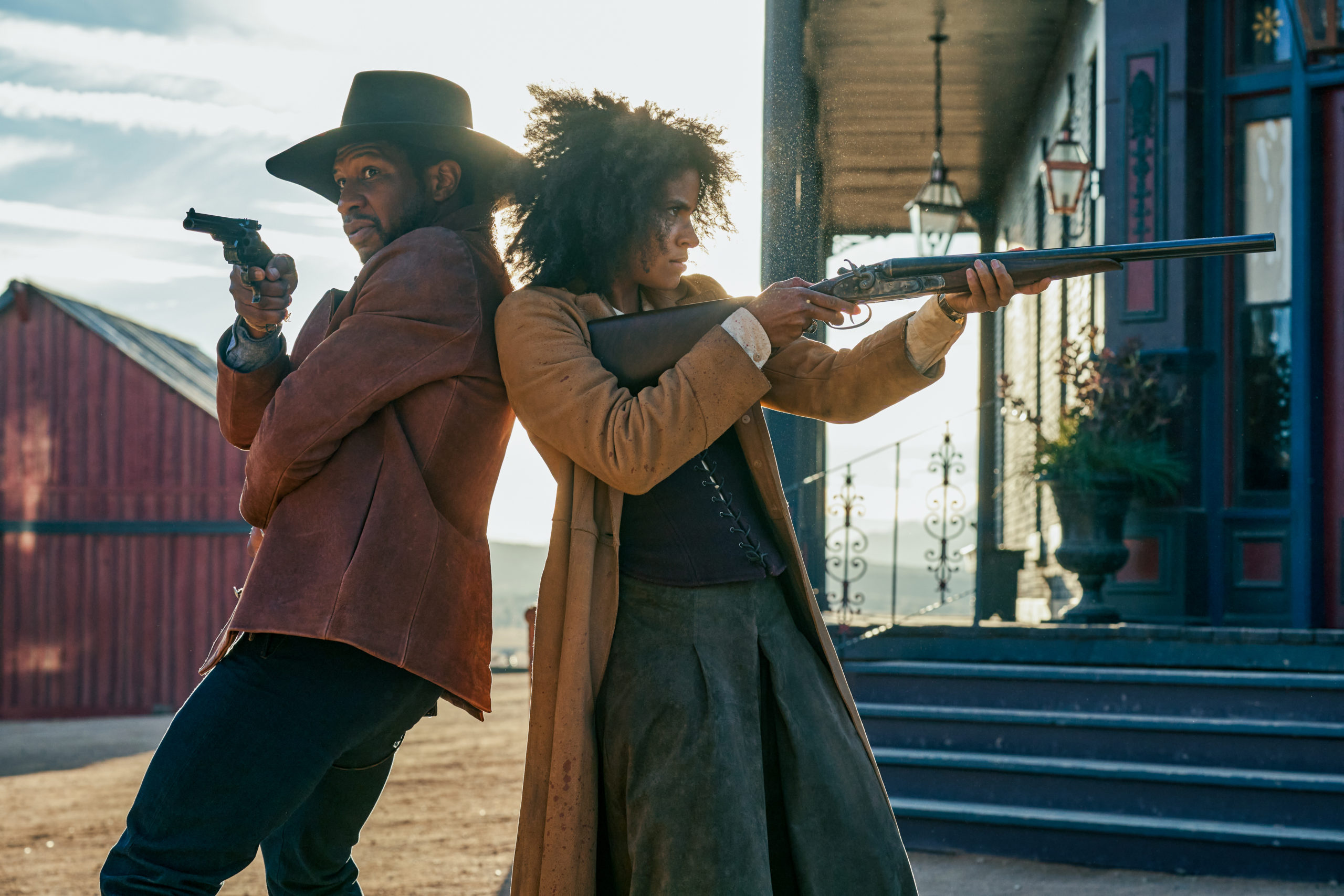
Jonathan Majors and Zazie Beetz. Photo by David Lee/Netflix © 2021
MAJORS: That’s one of the things I think about a lot: perfection and process. As long as you’re in process, you’re perfect. That’s one of the ways that I can go crazy.
BEETZ: Was it easy for you to move on from Nat after filming? You were with him for so long.
MAJORS: He was hard. I never really got rid of him. It sounds strange, but it gets to a point where I can stand in myself and I can look over and have a conversation with him. It’s not woo-woo, it’s just imagination. I can conjure him up. I guess to answer the question, it took a while and I had to stop certain things. I was smoking and drinking a lot of whiskey.
BEETZ: I know!
MAJORS: And I don’t smoke! I don’t really like drinking that much either. But I allowed those “allies” to come in. But when the war was over, the whiskey went away, the cigarillos went away, the cowboy boots left. I’m better and stronger now that I’ve played him, or he’s played me. So the parts of him that activated and healed me have relaxed now. But the things we learn stick with us. I’m now a better horse rider. I’m quite confident. [Laughs] And is that me? Or is that Nat? I say that’s Nat. He’s not as forward as he once was, but he’s around. And also, it’s hard to look at you and not see Mary. I text you sometimes and—
BEETZ: You say Mary, yeah. I don’t mind. I always respected what you were doing. It makes me think about what you’re willing to sacrifice and give of yourself in order to allow a character to live in their truest self. I feel like all characters are parts of myself. They just exist in other corners of my body. With the smoking and drinking, I remember thinking, “Wow this is such a shift.” It’s so cliche to say, but those things really do change you. I think, “Would I gain 50 pounds for a role?” I don’t know. I worry about what that would do to my mental state, but also, what does it not allow me to have access to?
MAJORS: Right.
BEETZ: I think about that a lot, even in the context of you and Nat. You have that intensity and commitment, but you’re also yourself on set. You don’t ever seem lost. It’s never like, “Where the hell did Jonathan go?”
MAJORS: [Laughs] Yeah. That’s so nice. It’s such a gift, though, to give it and also to receive it. You’re so present in that moment, there’s no other way to do it. After playing Mary, what are you interested in doing now?
BEETZ: I’m not really tethered to any genre now. I love the idea of exploring the duality of being human and containing multitudes. I think that we’re living in a time where people do have rather binary feelings about things, at least publicly. I would like to engage in that and challenge that. I mean that in the most internal sense. I also want to be more front-footed about vulnerability in my life and in my performances.
MAJORS: That speaks to your duality.
BEETZ: Yeah. I was talking to a friend about this and I was like, “I feel like I’m vulnerable.” And she said, “You’re not, really.” I don’t like that. I don’t want to just play roles that are “sturdy and strong.” That’s one part of who I am, but it’s certainly not all of who I am.

